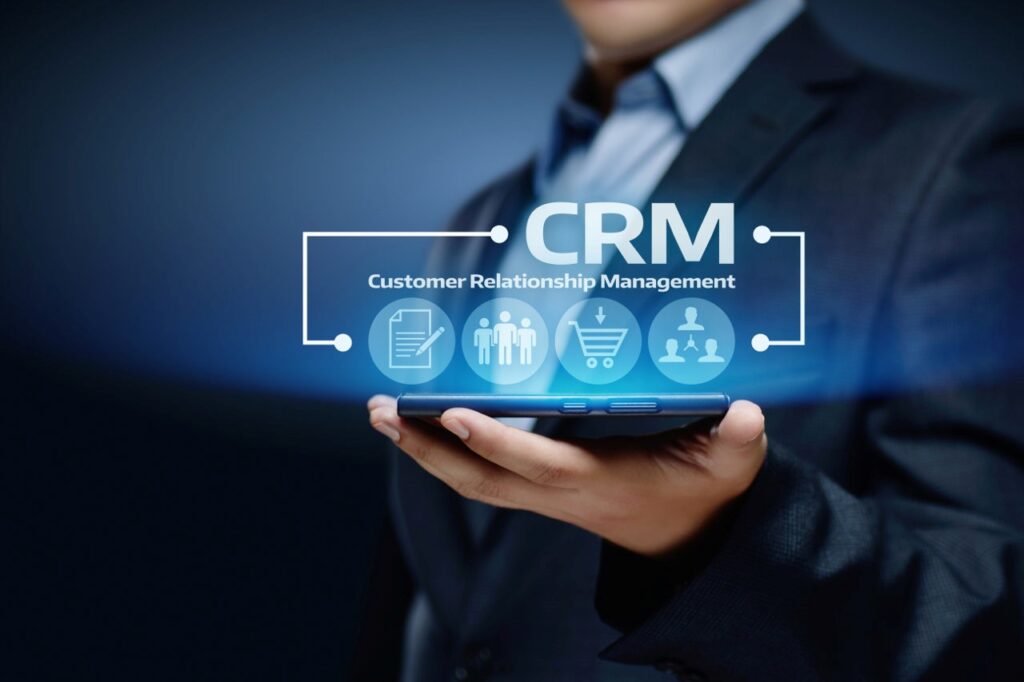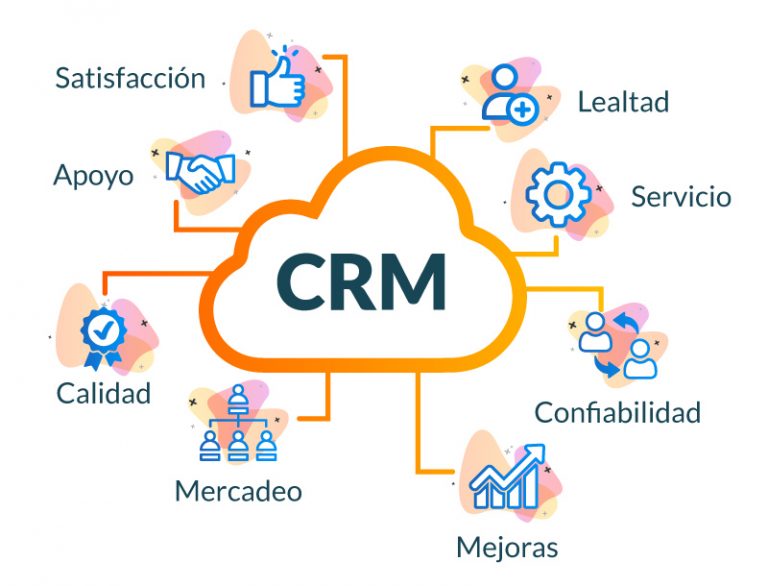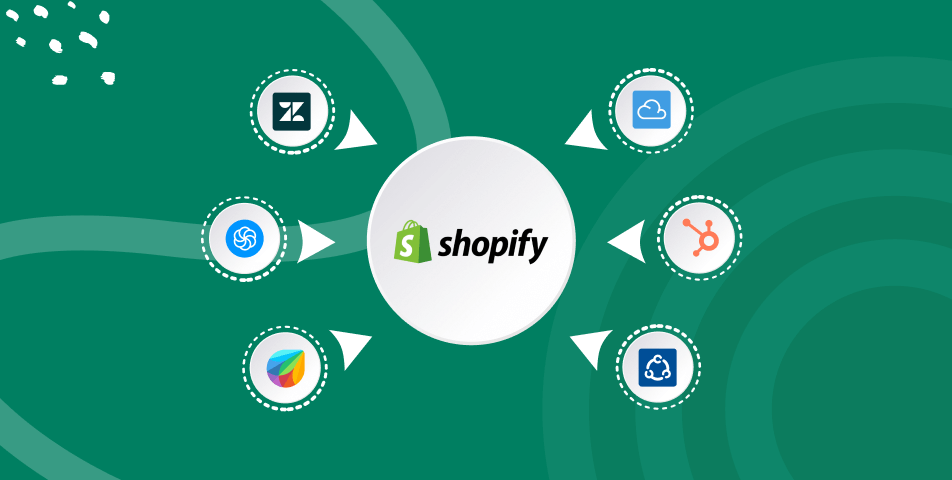
CRM Marketing for Beginners: Your Ultimate Guide to Customer Relationship Management
Embarking on the journey of CRM marketing can feel like stepping into a maze. It’s a world of acronyms, strategies, and technologies that promise to revolutionize your business. But fear not, aspiring marketers! This comprehensive guide is designed specifically for beginners, breaking down the complexities of CRM marketing into easily digestible pieces. We’ll explore what CRM marketing is, why it’s crucial, and how you can implement it effectively to nurture customer relationships, boost sales, and drive sustainable growth. So, let’s dive in and demystify the world of Customer Relationship Management!
What is CRM Marketing? Unveiling the Core Concepts
At its heart, CRM marketing is all about building and managing relationships with your customers. It’s a strategic approach that uses technology, processes, and people to understand your customers better, personalize their experiences, and ultimately, foster loyalty. Think of it as a central hub for all your customer interactions, providing a 360-degree view of each customer’s journey.
CRM stands for Customer Relationship Management. It’s not just a software; it’s a philosophy. It’s about putting the customer at the center of your business strategy. This involves collecting and analyzing data about your customers, understanding their needs and preferences, and tailoring your marketing efforts to meet those needs.
Here’s a breakdown of the key components of CRM marketing:
- Customer Data Collection: Gathering information about your customers from various sources, such as website interactions, social media, email campaigns, and sales transactions.
- Data Analysis: Analyzing the collected data to identify patterns, trends, and insights into customer behavior.
- Segmentation: Grouping customers based on shared characteristics, such as demographics, purchase history, and engagement levels.
- Personalization: Tailoring marketing messages and offers to individual customer preferences and needs.
- Automation: Automating repetitive tasks, such as email marketing and lead nurturing, to improve efficiency and save time.
- Reporting and Analytics: Tracking and measuring the performance of your CRM marketing efforts to identify areas for improvement.
Why is CRM Marketing Important? The Benefits Explained
In today’s competitive landscape, simply having a good product or service isn’t enough. You need to build strong relationships with your customers to stand out from the crowd. CRM marketing provides the tools and strategies to achieve this, offering a multitude of benefits:
- Improved Customer Retention: By understanding your customers’ needs and preferences, you can provide personalized experiences that keep them coming back for more. Happy customers are loyal customers.
- Increased Sales: CRM marketing helps you identify and target the most promising leads, nurture them through the sales funnel, and close deals more effectively.
- Enhanced Customer Satisfaction: Personalized communication and proactive customer service lead to higher satisfaction levels. When customers feel valued, they’re more likely to become brand advocates.
- Better Customer Insights: CRM systems provide valuable data about your customers, allowing you to understand their behavior, preferences, and pain points. This information can inform your product development, marketing strategies, and overall business decisions.
- Streamlined Processes: CRM software automates many time-consuming tasks, such as data entry and email marketing, freeing up your team to focus on more strategic initiatives.
- Improved Communication: CRM systems provide a centralized platform for all customer interactions, ensuring that everyone in your organization has access to the same information and can communicate effectively with customers.
- Increased Efficiency: By automating tasks and providing a clear view of the customer journey, CRM marketing helps you optimize your marketing efforts and achieve better results with less effort.
Getting Started with CRM Marketing: A Step-by-Step Guide
Ready to jump into the world of CRM marketing? Here’s a step-by-step guide to help you get started:
1. Define Your Goals and Objectives
Before you dive into any CRM marketing activities, it’s essential to define your goals and objectives. What do you hope to achieve with CRM? Do you want to increase sales, improve customer retention, or enhance customer satisfaction? Having clear goals will help you choose the right CRM software, develop effective strategies, and measure your results.
2. Choose the Right CRM Software
There are many CRM software options available, each with its own features, pricing, and target audience. Research different platforms, compare their features, and choose the one that best fits your business needs and budget. Consider factors such as ease of use, scalability, and integration capabilities.
Some popular CRM software options for beginners include:
- HubSpot CRM: A free, user-friendly CRM with a wide range of features, including contact management, sales pipelines, and email marketing.
- Zoho CRM: A feature-rich CRM with a variety of pricing plans to suit different business sizes.
- Salesforce Essentials: A simplified version of Salesforce, designed for small businesses.
- Pipedrive: A sales-focused CRM with a visual interface and pipeline management tools.
3. Import and Organize Your Data
Once you’ve chosen your CRM software, the next step is to import your existing customer data. This may involve importing data from spreadsheets, email lists, or other sources. Ensure that your data is clean, accurate, and well-organized. This will make it easier to segment your customers and personalize your marketing efforts.
4. Segment Your Customers
Customer segmentation involves dividing your customers into groups based on shared characteristics. This allows you to tailor your marketing messages and offers to specific customer segments, increasing the likelihood of engagement and conversion. Common segmentation criteria include demographics, purchase history, and engagement levels.
5. Create Targeted Marketing Campaigns
Once you’ve segmented your customers, you can create targeted marketing campaigns. This may involve sending personalized emails, creating targeted social media ads, or offering exclusive promotions to specific customer segments. Use your CRM data to personalize your messaging and make it relevant to each customer’s needs and interests.
6. Automate Your Marketing Efforts
CRM software allows you to automate many repetitive marketing tasks, such as email marketing, lead nurturing, and social media posting. Automation saves time, improves efficiency, and ensures that your marketing efforts are consistent and timely.
7. Track and Measure Your Results
It’s important to track and measure the performance of your CRM marketing efforts. Use your CRM software’s reporting and analytics features to monitor key metrics, such as open rates, click-through rates, conversion rates, and customer lifetime value. This data will help you identify what’s working and what’s not, allowing you to optimize your strategies and improve your results.
8. Train Your Team
Ensure that your team is properly trained on how to use your CRM software and implement your CRM marketing strategies. Provide ongoing training and support to help your team stay up-to-date on the latest CRM features and best practices.
9. Continuously Improve
CRM marketing is an ongoing process. Continuously evaluate your strategies, analyze your results, and make adjustments as needed. Stay up-to-date on the latest CRM trends and best practices to ensure that you’re getting the most out of your CRM investment.
CRM Marketing Strategies for Beginners: Practical Tips
Now that you have a solid understanding of the fundamentals, let’s explore some practical CRM marketing strategies that beginners can implement:
1. Email Marketing
Email marketing is a cornerstone of CRM marketing. Use your CRM data to segment your email list and send personalized messages to different customer segments. Automate your email marketing efforts to nurture leads, onboard new customers, and re-engage inactive customers.
Here are some email marketing best practices:
- Personalize your emails: Use the customer’s name and other relevant information to make your emails feel more personal.
- Segment your email list: Divide your email list into different segments based on customer characteristics and behavior.
- Write compelling subject lines: Create subject lines that grab attention and encourage recipients to open your emails.
- Provide valuable content: Offer valuable content that is relevant to your customers’ needs and interests.
- Include a clear call to action: Tell your customers what you want them to do, such as visit your website or make a purchase.
- Track your results: Monitor your email open rates, click-through rates, and conversion rates to measure the effectiveness of your campaigns.
2. Lead Nurturing
Lead nurturing is the process of building relationships with potential customers over time. Use your CRM data to track leads’ interactions with your business and send them targeted content that addresses their needs and interests. Automate your lead nurturing efforts to keep leads engaged and move them through the sales funnel.
Here are some lead nurturing best practices:
- Identify your target audience: Determine who you are trying to reach with your lead nurturing campaigns.
- Create valuable content: Offer content that is relevant to your target audience’s needs and interests.
- Use a variety of channels: Reach out to leads through email, social media, and other channels.
- Personalize your messages: Tailor your messages to the specific needs and interests of each lead.
- Track your results: Monitor your lead nurturing metrics, such as lead conversion rates, to measure the effectiveness of your campaigns.
3. Customer Service
Excellent customer service is essential for building customer loyalty. Use your CRM software to track customer interactions, resolve issues quickly, and provide personalized support. Proactively reach out to customers to address their needs and solicit feedback.
Here are some customer service best practices:
- Be responsive: Respond to customer inquiries and complaints promptly.
- Be empathetic: Show empathy for your customers’ issues and concerns.
- Provide personalized support: Tailor your support to the specific needs of each customer.
- Go the extra mile: Do whatever it takes to make your customers happy.
- Solicit feedback: Ask your customers for feedback on their experiences.
4. Social Media Marketing
Use social media to engage with your customers, build brand awareness, and drive traffic to your website. Use your CRM data to identify your target audience on social media and create targeted ads. Monitor your social media channels for customer feedback and respond to inquiries promptly.
Here are some social media marketing best practices:
- Choose the right platforms: Focus on the social media platforms that your target audience uses.
- Create engaging content: Post content that is relevant to your target audience’s needs and interests.
- Be consistent: Post regularly to keep your audience engaged.
- Engage with your audience: Respond to comments and messages promptly.
- Track your results: Monitor your social media metrics, such as engagement rates and reach, to measure the effectiveness of your campaigns.
5. Sales Automation
Sales automation involves using CRM software to automate sales tasks, such as lead assignment, follow-up emails, and sales reports. Automation helps sales teams work more efficiently and close more deals. Use your CRM data to track sales performance and identify areas for improvement.
Here are some sales automation best practices:
- Automate lead assignment: Automatically assign leads to sales reps based on their skills and availability.
- Automate follow-up emails: Send automated follow-up emails to leads and customers.
- Automate sales reports: Generate sales reports automatically.
- Use a CRM system: Use a CRM system to track sales activities and performance.
- Train your sales team: Train your sales team on how to use sales automation tools effectively.
Choosing the Right CRM Software: Key Considerations
Selecting the right CRM software is a pivotal decision. It’s the foundation upon which your CRM marketing efforts will be built. Here’s what you should consider when making your choice:
- Your Business Needs: Evaluate your specific requirements. Do you need robust sales automation features? Comprehensive marketing tools? Or is customer service your priority? The software should align with your business goals.
- Scalability: Choose a CRM that can grow with your business. As your customer base expands, your CRM needs will evolve. Ensure the software can handle increased data volume and user access.
- Ease of Use: The software should be user-friendly. If the system is complex, your team may resist using it. Look for intuitive interfaces and easy-to-understand features.
- Integration Capabilities: Ensure the CRM integrates seamlessly with your existing tools, such as email marketing platforms, social media channels, and accounting software.
- Pricing: CRM software comes with various pricing models. Consider your budget and the features offered. Some offer free versions with limited functionality, while others have tiered pricing based on features and users.
- Customer Support: Look for a provider that offers excellent customer support. This includes training resources, documentation, and responsive technical assistance.
- Data Security: Data security is paramount. Choose a CRM with robust security measures to protect your customer data.
Common Mistakes to Avoid in CRM Marketing
Even with the best intentions, beginners can stumble. Avoiding these common pitfalls will help you maximize your CRM marketing success:
- Not Defining Your Goals: Without clear objectives, you won’t know if your CRM efforts are successful.
- Choosing the Wrong CRM Software: Selecting a CRM that doesn’t fit your needs can be a costly mistake.
- Poor Data Quality: Inaccurate or incomplete data will undermine your efforts.
- Lack of User Adoption: If your team doesn’t use the CRM, it won’t be effective.
- Ignoring Customer Feedback: Failing to listen to your customers’ needs and preferences.
- Not Personalizing Your Messages: Sending generic messages instead of tailored communications.
- Over-Automating: Automation should enhance, not replace, human interaction.
- Not Measuring Your Results: Without tracking your progress, you won’t know if your efforts are paying off.
Measuring the Success of Your CRM Marketing Efforts: Key Metrics
To truly gauge the effectiveness of your CRM marketing, you need to track key metrics. These metrics provide valuable insights into your performance and help you refine your strategies.
- Customer Acquisition Cost (CAC): The cost of acquiring a new customer.
- Customer Lifetime Value (CLTV): The predicted revenue a customer will generate over their relationship with your business.
- Customer Retention Rate: The percentage of customers who remain customers over a specific period.
- Conversion Rates: The percentage of leads that become customers.
- Customer Satisfaction Score (CSAT): Measures customer satisfaction with your products or services.
- Net Promoter Score (NPS): Measures customer loyalty and willingness to recommend your business.
- Website Traffic and Engagement: Track website visits, bounce rates, and time spent on site.
- Email Marketing Metrics: Monitor open rates, click-through rates, and conversion rates for email campaigns.
The Future of CRM Marketing: Trends to Watch
The world of CRM marketing is constantly evolving. Staying ahead of the curve requires keeping an eye on emerging trends:
- Artificial Intelligence (AI): AI-powered CRM systems can automate tasks, personalize customer experiences, and provide valuable insights.
- Machine Learning (ML): ML algorithms can analyze customer data to predict behavior and improve marketing effectiveness.
- Personalization: Customers expect personalized experiences. CRM marketing will continue to focus on tailoring messages and offers to individual needs.
- Omnichannel Marketing: Integrating marketing efforts across multiple channels, such as email, social media, and mobile, to provide a seamless customer experience.
- Data Privacy and Security: Protecting customer data will be a top priority.
- Mobile CRM: Accessing CRM data and managing customer interactions on mobile devices.
Conclusion: Embracing the Power of CRM Marketing
CRM marketing is a powerful tool for building strong customer relationships, driving sales, and achieving sustainable growth. By understanding the fundamentals, implementing effective strategies, and continuously learning and adapting, you can harness the power of CRM to transform your business. Remember, it’s not just about the technology; it’s about putting the customer at the center of everything you do.
As a beginner, you now have the knowledge to embark on your CRM marketing journey. Start by defining your goals, choosing the right CRM software, and implementing the strategies outlined in this guide. Embrace the process, learn from your experiences, and never stop striving to improve your customer relationships. The rewards are well worth the effort.
Good luck, and happy marketing!




